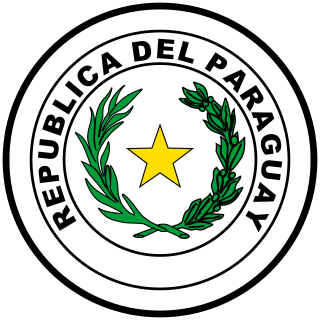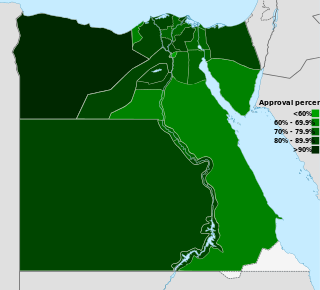
The politics of Andorra take place in a framework of a parliamentary constitutional diarchy, and a multi-party system. Executive power is exercised by the government, with the Head of Government of Andorra as chief executive. Legislative power is vested in both the government and parliament. The judiciary is independent of the executive and the legislature.

In political science, an initiative is a means by which a petition signed by a certain minimum number of registered voters can force a public vote in parliament called an indirect initiative or via a direct initiative, the latter then being dubbed a Popular initiated Referendum.

The Constitution of the Irish Free State was adopted by Act of Dáil Éireann sitting as a constituent assembly on 25 October 1922. In accordance with Article 83 of the Constitution, the Irish Free State Constitution Act 1922 of the British Parliament, which came into effect upon receiving the royal assent on 5 December 1922, provided that the Constitution would come into effect upon the issue of a Royal Proclamation, which was done on 6 December 1922. In 1937 the Constitution of the Irish Free State was replaced by the modern Constitution of Ireland following a referendum.
A constitutional amendment is a modification of the constitution of a polity, organization or other type of entity. Amendments are often interwoven into the relevant sections of an existing constitution, directly altering the text. Conversely, they can be appended to the constitution as supplemental additions (codicils), thus changing the frame of government without altering the existing text of the document.
The Constitution of South Africa is the supreme law of the Republic of South Africa. It provides the legal foundation for the existence of the republic, sets out the rights and duties of its citizens, and defines the structure of the government. The current constitution, the country's fifth, was drawn up by the Parliament elected in 1994 in the South African general election, 1994. It was promulgated by President Nelson Mandela on 18 December 1996 and came into effect on 4 February 1997, replacing the Interim Constitution of 1993.

The Federal Constitution of Malaya, which came into force in 1957, is the supreme law of Malaya. The Federation was initially called the Federation of Malaya and it adopted its present name, Malaysia, when the States of Sabah, Sarawak and Singapore became part of the Federation. The Constitution establishes the Federation as a constitutional monarchy having the Yang di-Pertuan Agong as the Head of State whose roles are largely ceremonial. It provides for the establishment and the organisation of three main branches of the government: the bicameral legislative branch called the Parliament, which consists of the House of Representatives and the Senate ; the executive branch led by the Prime Minister and his Cabinet Ministers; and the judicial branch headed by the Federal Court.
The current Constitution of the State of Maryland, which was ratified by the people of the state on September 18, 1867, forms the basic law for the U.S. state of Maryland. It replaced the short-lived Maryland Constitution of 1864 and is the fourth constitution under which the state has been governed. It was last amended in 2012.
The Constitution of the State of Tennessee defines the form, structure, activities, character, and fundamental rules of the U.S. State of Tennessee.
The Constitution of the State of Arkansas is the governing document of the U.S. state of Arkansas. It was adopted in 1874, shortly after the Brooks-Baxter War. It replaced the 1868 constitution adopted by the legislature following the end of the American Civil War and under which Arkansas rejoined the Union.

The National Assembly is the unicameral parliament and legislative body of the Republic of Bulgaria.
The Constitution of the Commonwealth of Kentucky is the document that governs the Commonwealth of Kentucky. It was first adopted in 1792 and has since been rewritten three times and amended many more. The latter versions were adopted in 1799, 1850 and 1891.

The Tarnovo Constitution was the first constitution of Bulgaria.

The Congressional Apportionment Amendment is a proposed amendment to the United States Constitution that addresses the number of seats in the House of Representatives. It was proposed by Congress on September 25, 1789, but was never ratified by the requisite number of state legislatures. As Congress did not set a time limit for its ratification, the Congressional Apportionment Amendment is still technically pending before the states.

The Republic of Paraguay is governed under the constitution of 1992, which is the country's sixth since independence from Spain in 1811.

The Constitution of the Republic of Turkey, also known as the Constitution of 1982, is Turkey's fundamental law. It establishes the organization of the government and sets out the principles and rules of the state's conduct along with its responsibilities in regards to its citizens. The constitution also establishes the rights and responsibilities of the latter while setting the guidelines for the delegation and exercise of sovereignty that belongs to the Turkish people.

A constitutional referendum was held in Egypt on 19 March 2011, following the 2011 Egyptian revolution. More than 14 million (77%) were in favour, while around 4 million (23%) opposed the changes; 41% of 45 million eligible voters turned out to vote.
The Convention on the Constitution was established in Ireland in 2012 to discuss proposed amendments to the Constitution of Ireland. More commonly called simply the Constitutional Convention, it met for the first time 1 December 2012 and sat until 31 March 2014. It had 100 members: a chairman; 29 members of the Oireachtas (parliament); four representatives of Northern Ireland political parties; and 66 randomly selected citizens of Ireland.

Constitutional Assembly elections were held in Bulgaria in June 1881. The body known as the Grand National Assembly was convened for a second time in Svishtov in order to consider the amendments to the constitution proposed by prince Alexander I of Battenberg. The proposed amendments were an echo from the Conservative's requests during the first constitutional assembly elections back in 1879. The amendments proposed included restricting civil liberties, reducing the size of the National Assembly, making the franchise indirect and introducing a state council. These amendments would, in effect, suspend the constitution and turn Bulgaria into an authoritarian dictatorship.
The basic law of the electoral franchise in the Republic of Ireland is Article 16 of the Constitution of Ireland, which states who can vote for Dáil Éireann, the lower house of the Oireachtas or parliament. Irish citizens who are Dáil electors have the right to vote in all other elections, though not conversely.














